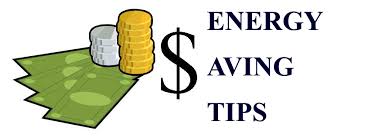Home Conservation Ideas
While most potential home buyers consider their monthly mortgage payments (including principal, interest, and escrow/ taxes), many fail to consider other monthly homeownership expenses adequately. Perhaps the highest cost is energy-related activities, including electricity and heart. The purpose of this article is not to examine the many alternative heating alternatives, including solar, geothermal, etc., but to review some simple steps one can somewhat easily take to make their home more energy-efficient and friendly. Let’s look at five simple, basic energy conservation ideas/actions.
1. Windows and doors: What is the Energy Efficiency Ratio of your entry doors? What material are they made of? How are they hung? How much air is seeping out, through the spaces created, because of their alignment? Assuring your door has a bottom sweep and the areas around the top and sides are reduced/ eliminated will prevent heat from escaping in the winter and air conditioning during summer. What blinds or curtains are you using, and are you using them to let the sun in when it is cold out while reducing the entry of the sun’s heat when it is hot? When did you last check your windows regarding air-tightness, energy rating, and tinting (if your local climate indicates doing so)?
2. Insulation: Every form of insulation comes with an R rating. This number indicates the amount of insulation, but are you confident all exterior walls and ceilings are properly insulated? Doing so might potentially save a considerable amount of unnecessary energy costs.
3. Energy-efficient appliances: Certain home appliances, especially refrigerators, freezers, and air conditioners, have become far more energy-efficient in recent years. How old are you? Look at the rating, and it will indicate how much energy a particular appliance might be using. When I recently replaced my refrigerator, the new one was far more efficient (therefore, cost less) than my 15 – year old model. Similarly, today’s oil and gas burners and boilers are far more efficient than ever!
4. Water and toilet: Are there dripping faucets or toilets that continue to run -? Eliminate the drips, change faucet heads (especially in the shower), and check the efficiency of your bathrooms.
5. Lights/ fixtures: Begin by turning the lights off when you leave the room! What type of light bulb are you using? Today’s bulbs are four or more times more efficient (use less energy/ wattage) than older ones. Do lamps and fixtures – review regularly!
These five ideas may seem basic and obvious, but you’d be amazed how few people consider these. Unless you like wasting energy and spending more than you need to, using these simple conservation methods will save money and reduce energy waste.

